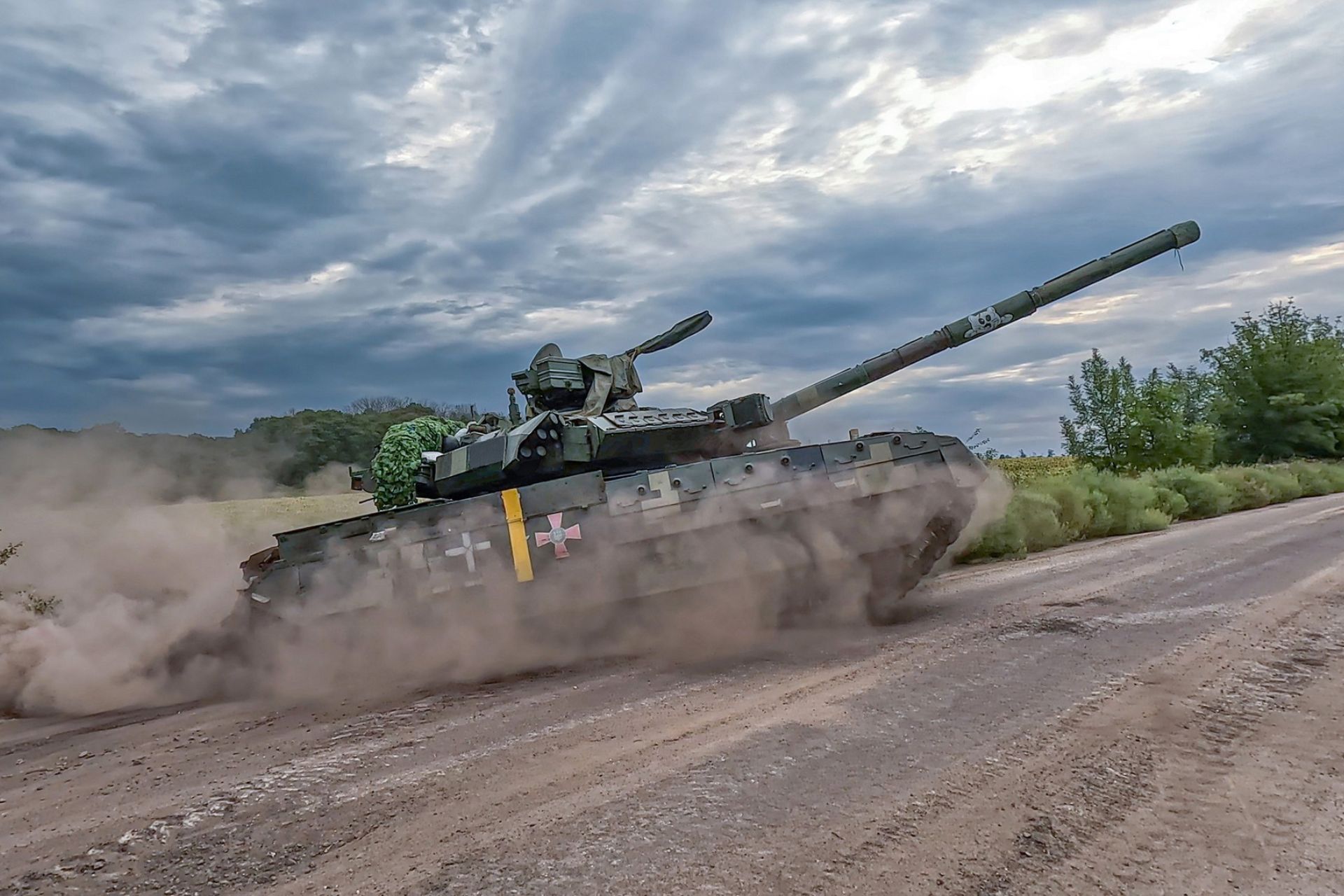Breaking News
According to Ukrainian Officials, Russia Aims for a Decisive Victory in Ukraine by 2026.
Russia is pursuing efforts to secure a decisive victory in Ukraine by 2026 while facing medium- and long-term economic and force generation constraints. During the 20th Yalta European Strategy meeting in Kyiv on September 15, the head of Ukraine's Main Military Intelligence Directorate (GUR), Lieutenant General Kyrylo Budanov, stated that the Kremlin views 2025 as a critical year. Failure to achieve a victory in Ukraine by early 2026 could jeopardize Russia’s ambitions of remaining a global superpower for the next 30 years.

The Russian military is suffering from personnel shortages and a decline in the number of new volunteers signing contracts. (Picture source: Ukrainian Army)
Budanov noted that Russia anticipates a worsening economic and socio-political situation by mid-2025, alongside increasing difficulties in military recruitment. He indicated that the Russian military is suffering from personnel shortages and a decline in the number of new volunteers signing contracts. Recent significant increases in one-time payments to contract soldiers (kontraktniki), reported in at least 36 Russian regions, underscore Russia's struggles in maintaining its force numbers. Some regions are now paying kontraktniki more than one million rubles (11,000 dollars) or more, reflecting the costly measures taken to sustain troop levels.
The Ukrainian incursion into the Kursk region and continued strikes on Russian territory have reportedly demoralized Russian citizens and eroded the perception of Russian invincibility. Budanov believes that these developments could force Russian President Vladimir Putin to make a crucial decision: either launch a new, risky, and controversial mobilization or reduce the intensity of military operations in Ukraine. This scenario hinges on the assumption that Western states will continue to support Ukraine at current levels in the coming years. It remains uncertain how Putin will respond to the growing constraints faced by Russia in the Ukraine conflict, including the potential reliance on foreign partners such as Iran, North Korea, and China.
Russia also faces increasing challenges related to the production and acquisition of equipment needed for its operations in Ukraine. The Russian military has relied heavily on refurbishing stocks of Soviet-era weapons and equipment, particularly armored vehicles, to sustain its offensive operations. To maintain its current operational tempo in the medium and long term, the Russian military will likely need to further mobilize the Russian economy and defense industry and invest in capacity building. However, it is unclear whether Russia's defense industry can produce enough to offset the significant equipment losses in Ukraine, even with additional economic mobilization. Labor shortages, already exacerbated by the conflict, present another potential obstacle.
Budanov also highlighted North Korea's critical role as Russia's most influential military ally. North Korean artillery shell deliveries have had a direct and rapid effect on the war's dynamics, with intensified Russian operations observed days after these supplies arrived. According to the GUR, Russia’s defense industrial base cannot produce enough artillery ammunition to sustain its current rate of fire. North Korea delivered one million artillery shells to Russia between September and November 2023 and an additional 4.8 million rounds by June 2024. This military cooperation between Russia and North Korea is part of a broader relationship that Russia seeks to establish with other partners, such as Iran and China.
Meanwhile, Ukraine has begun the domestic production of 155mm artillery shells according to NATO standards. Ukrainian presidential advisor Oleksandr Kamyshin indicated that the country's defense production doubled under his leadership at the Ministry of Strategic Industries (from March 2023 to September 2024) and is expected to triple by the end of 2024. Ukraine started producing these shells in small quantities as early as September 2023, having never produced them before.
Simultaneously, the Russian Ministry of Defense (MoD) quickly responded to criticism from Russian ultranationalists regarding the controversial deaths of two drone operators in Ukraine. Several Russian military bloggers reported that the two operators from the 87th Separate Rifle Regiment were killed in combat near Pokrovsk after their commander forced them to join an assault detachment as punishment for criticizing their leadership. The Russian MoD immediately announced an investigation into the incident, highlighting the sensitivity of Russian authorities to reactions from the ultranationalist community.
However, Russian military bloggers expressed skepticism about the MoD's ability to address the systemic issues that led to these deaths, including the tendency to falsify reports to present a favorable military situation, misuse of specialized soldiers in ground assaults, command dysfunctions, and abuses of power by commanders.
The situation involving prisoners of war (POWs) was recently exacerbated by remarks made by Apty Alaudinov, commander of the Chechen Akhmat Spetsnaz forces. After families of Chechen soldiers captured during the Ukrainian incursion into the Kursk region sought his help, Alaudinov claimed that "surrender is the greatest shame" for Chechens and suggested that the captured soldiers should have attacked their guards to provoke a deadly response. His statements, widely disseminated by Russian state media, reflect internal tensions within Russian society and the armed forces.
These developments reveal the numerous challenges faced by both Russia and Ukraine as they brace for a conflict that could extend well beyond 2026.
























